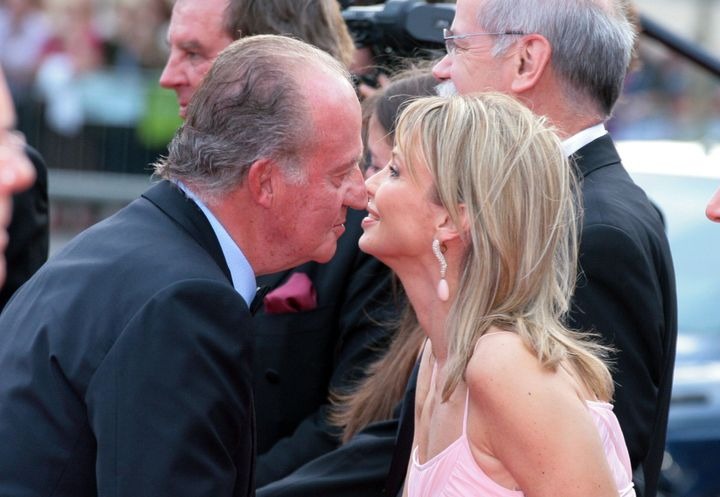The ex-lover of Juan Carlos, the disgraced former king of Spain, has described his decision to transfer €65m in 2012 to her as an «enormously generous gift», dismissing claims of money laundering.
Corinna zu Sayn-Wittgenstein told the BBC that the ex-king had given her the money as «recognition of how much I meant to him», and out of «gratitude for looking after him during his absolutely worst moments».
Ms Sayn-Wittgenstein became the king’s mistress in 2004. The love affair with the ex-king ended in 2009, but the two remained close friends, according to her.
Juan Carlos has not spoken publicly about the transfer but the London-based Daily Telegraph has seen a document from the Geneva investigation in which he also claims it was a gift that he had no intention of seeking back.
The former king wrote to his Swiss lawyer that the «donation agreed to by me in 2012 to Madame Corinna zu Sayn-Wittgenstein was irrevocable».
In the signed letter, dated August 12, 2018, Juan Carlos adds that he has not received any part of the money in return and never asked for it.
In her interview with the BBC, Ms zu Sayn-Wittgenstein said that in 2014 Juan Carlos had in fact demanded that she return the sum to him – but she put it down to him being angry that she did not wish to resume a relationship.
«In 2014 he made desperate attempts to get me to come back to him», Sayn-Wittgenstein says. «At some point he realised I wasn’t going to return, and he went completely ballistic. He asked for everything back. I think it was just a tantrum he threw».
In testimony to the Swiss prosecutor, zu Sayn-Wittgenstein said she believed the king had given her the money out of love.
In 2014 he abdicated in favour of his son Felipe. As emeritus king, he was still busy with official engagements, trade trips and international travel – especially to the Middle East.
It is those close contacts Juan Carlos has in the Middle East that have become the subject of intense scrutiny – especially from prosecutors. The legal investigation began after the internet publication El Español published a series of materials in 2018 based on transcripts of taped conversations between José Villarejo, a former police investigator, with wealthy and influential figures, including Sayn-Wittgenstein.
In one of the recordings, a female voice asks rhetorically in Spanish about the emeritus king: «How does he get money? He takes a plane, goes to Arab countries… And he returns with the cash in suitcases – sometimes with five million. He has a machine to count it – I’ve seen it with my own eyes».
At the same time, Corinna zu Sayn-Wittgenstein has never officially confirmed it was her on the recording. But the revelations from those tapes were sensational, and they became the catalyst for the opening of investigations in Switzerland and, more recently, in Spain.
At the heart of the proceedings is a $100 million payment from the late king of Saudi Arabia that was placed in a Swiss bank account in 2008.
Prosecutor Yves Bertossa’s ongoing inquiry centres on a $100m gift to Juan Carlos from the king of Saudi Arabia in 2008, and whether it was in connection with the awarding of a €6.7bn contract for a Spanish consortium to build a high-speed railway from Medina to Mecca three years later.
Mr Bertossa has discovered the existence of two offshore funds, connected to Swiss bank accounts.
One is the Panama-based Lucum Foundation, set up to receive the $100m gift from the late King Abdullah, and which was liquidated in 2012, with almost the entire original amount donated to Ms zu Sayn-Wittgenstein, a German-born businesswoman.
The other fund is Fondation Zagatka, registered in Liechtenstein and whose primary beneficiary is Alvaro de Orleans. He is a distant cousin of the king who has been questioned by Mr Bertossa over why its account received multi-million payments from overseas business deals while shelling out more than €5m on private jet flights used by Juan Carlos.
Mr de Orleans claims he has helped the king out of a sense of «family honour» and that Zagatka’s millions are all his own.
In June, prosecutors at Spain’s Supreme Court announced the start of the first ever investigation into Juan Carlos in his own country, to establish whether the former king could be accused of any crimes related to the Saudi money. The former king remains immune from prosecution for any action committed before his 2014 abdication.
In early August 2020, the ex-king left Spain and is currently in the United Arab Emirates.


